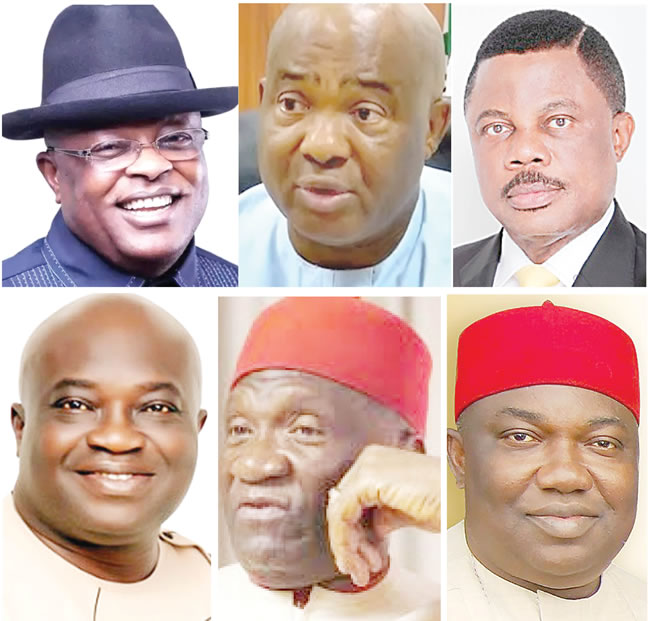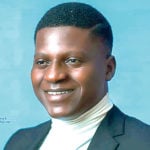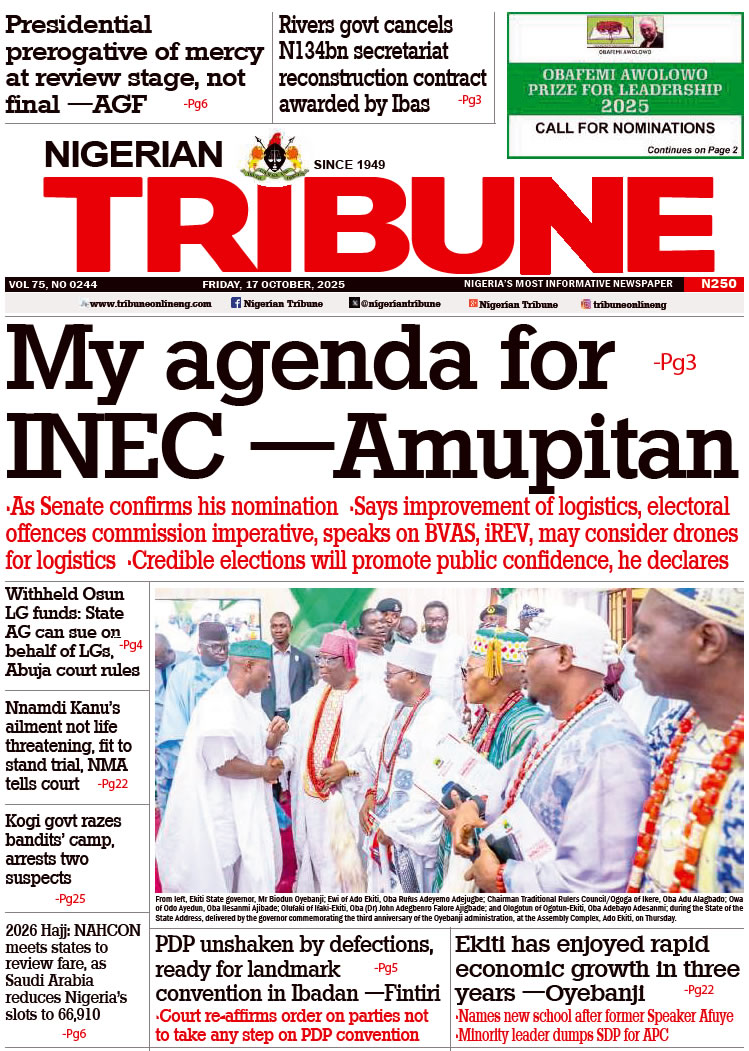In many circles among the Igbo, many are wont to analysing the pace of development in Igbo land in the context of the First Republic politics, with a lot of stakeholders giving kudos and knocks to successive administrations in the geopolitical zone in the last six decades, writes JUDE OSSAI.
It is common for the people of the Igbo ethnic extraction to compare the first six years of independent Nigeria to 54 subsequent years. Their reason for the comparison are the physical structures, human capacity building and economic progress and prosperity recorded in the First Republic under the Late Sir Michael Okpara as the premier of the defunct Eastern Region. He is credited with laying a solid foundation and creating a template development agenda for the region which then covered part of the existing South-South states, excluding Edo and Delta states. Indeed, a lot of the people claim that the most remarkable period for the Igbo in the last 60 years of Nigeria as a sovereign entity was under Okpara because of his monumental projects scattered all over the region. He built many farm settlements in the present Southeast and South-South geo-political zones. He also excelled in different fronts, including commerce and industry. For example, he built the Hotel Presidential in Enugu and Port Harcourt; established oil palm and cashew plantations in the present South-East and South-South zones, as well as established Nigergas, Nigercem, Niger Floor mill in Enugu, among others.
Golden era
Michael Iheonukara Okpara, known as M.I. Power on the political scene, held sway from 1959 to 1966. Aside being an advocate of what he called pragmatic socialism, he also strongly believed that investing in agriculture is key to Nigeria’s development. At 39, he was the nation’s youngest premier. Born on December 25, 1920 at Ohuhu in Umuahia, Abia State, Okpara attended Mission Schools and later Uzuakoli Methodist College before going to Yaba Higher College, Lagos, to study medicine on scholarship. Completing his studies, he worked briefly as a civil servant before going into private practice.
While practising medicine, he developed an interest in the Zikist Movement — a militant wing of the National Council of Nigeria and the Cameroons (NCNC). After the 1949 coal mines riot that led to the shooting and killing of some miners by the police at Enugu coal mines, Okpara and other members of Zikist Movement were arrested for inciting the miners to riot and later released. This action made Okpara popular, and with the granting of self-rule in 1952, he was elected into the Eastern Nigerian House of Assembly on the platform of the NCNC.
Between 1952 and 1959, he held various cabinet positions in the Region, including Minister without portfolio, Minister of Health, Minister of Agriculture and Production, among others.
In 1953, when NCNC legislators revolted against the party’s leadership, he remained loyal to Dr. Nnamdi Azikiwe and helped to keep the party united. In 1959, when Azikiwe resigned as Premier of the Eastern Region to become the Governor-General, Okpara became the leader of NCNC and presided over the Eastern Region from 1960 to 1966, when the military took over the government. He was one of the two Regional Premiers that were not killed in the coup.
Powerful and outspoken, Okpara was uncompromising on vital national issues. His stand on some national issues in 1963 led to the severance of relationship between his party, the NCNC and the then ruling Northern Peoples’ Congress (NPC).
As Premier, he promoted industrial and agricultural development of his region and protested against the 1962-63 census, challenging the accuracy of the figures. He believed that the country’s development lies in the agricultural revolution and did not only own large farms in his hometown but also encouraged people to go into large scale farming. He also championed the educational and infrastructural development of his region.
Okpara was the leader of the United Progressive Grand Alliance (UPGA) — a coalition of NCNC and Action Group (AG) formed in 1964. The party was defeated at the centre.
He worked with Ojukwu after the declaration of the Republic of Biafra and left for Ireland after the war.
In 1978, he returned to the country and became a member of the National Party of Nigeria (NPN). He died on December 17, 1984 in his village, Umuegwu Okpuala in Abia State. It is alleged that while in government, he never owned a house. But before his return from exile in 1978, his close associates and beneficiaries built a house for him in his village. He was a member of the Royal Academy of Physicians of Great Britain and in 1964, was honoured with the Grand Commander of the Order of the Niger (GCON), one of Nigeria’s highest honours in recognition of his services to the country.
Streets, roads, squares and tertiary institutions have been named after him in some states across the country. His statues are erected in some important places in Enugu and Abia States.
Post-humous recognition
It is in recognition of the immense contribution of Okpara to the economic growth and development of the areas that most Nigerians speak glowingly of his tenure as the premier of the defunct Eastern Region in the First Republic. One of such personalities that are nostalgic about his era is the president general of the Igbo Social-Cultural Organization in Anambra state, Chief Demian Ogene-Okeke, who described Okpara as a leader who stood for the truth. He challenged the present generation of leaders in the country to emulate the late premier. He urged the Federal Government to name a strategic place and structure in the Federal Capital Territory Abuja after him in recognition of his contribution to the political development of the country. Ogene-Okeke lamented the perceived continuous marginalization the Igbo in the scheme of things in the country.
The question is: why have successive regimes, beginning from the military regimes to the civilian dispensation not been able to raise the bar of good governance after Okpara? Apart from Chief Jim Nwobodo and Chief Sam Mbakwe, then governors of old Anambra and Imo states, respectively, no other Igbo leader has met the agricultural revolution set by Okpara. Another school of thought is that some of tjose lofty idea, ideals and monuments left behind by those leaders, especially Okpara have almost become relics, due to lack of consolidation and vision. The farm settlement schemes designed to guarantee food security, boost agro-allied industries and promote importation of produce have almost become moribund. The major industries bequeathed by the Okpara administration have become antiquated, just as the programme of rural development and integration had suffered an abysmal neglect, leading to massive rural-urban migration and pressure on infrastructure in the major cities and towns across the South-East. .
A cross section of Enugu residents argued that successive regimes had not raised the bar set by Okpara because of the over-centralisation of power at the centre. One of them was Dr Ikenna Okongwu, He said: “Every capital project has to be approved by the centre. This means that governors are practically incapacitated in any huge developmental project. Another reason is corruption. Avarice is the product of unchecked power; unchecked power in the sense that centralisation paves the leeway for silent looting of the nation’s treasury as far as the looter plays by the rule of the game at the centre. That is why people are calling for restructuring.
“Today we still talk of glorious era of Michael Okpara. Ironically, Okpara was the Premier of the East and not the Prime Minister of the country. Okpara used proceeds from palm oil to develop East; Chief Obafemi Awolowo used cocoa to develop West, while Ahmadu Bello used groundnut to develop the North. Let every region move at their pace as it was in the First Republic. There will be a healthy competition and it will douse tension and restiveness in the country,” Dr Okongwu, added.
On the whole, a number of the Igbo believe that they gained in the First Republic more than other periods in the history of Nigeria as an independent nation because some of their kinsmen were either elected or appointed into top positions in the parliamentary system of government that existed then. For instance, Dr Jaja Wachukwu was made the Minister of External Affairs; Dr Aja Nwachukwu (Minister of Education) Dr Nwafor Orinzu (Senate President), while Dr Nnamdi Azikiwe was the president of the country. However, some individuals still believed that the Igbo got those key positions based on merit and not through any form of concession by anybody. The convener of the Voice From the East, a pressure group, Mazi Kindness Jonah, argued that those top appointments were given to Igbo because they merited them by virtue of their western education. “Recall that Jaja Wachukwu was the first indigenous Speaker of the House of Representatives that received the mantle of leadership and handed it over to the Prime Minister, Sir Tafawa Balewa. The Igbo never gained from the First Republic collectively because there had never been Federal Government presence in terms of infrastructure,” Jonah said.
Mixed blessings
After the 1967 to 1970 civil war, the Igbo have produced the second in command under two different administration. The first time was in 1979, when the late Dr Alex Ekwueme became the vice president to President Shehu Shagari. The second period was when Commodore Ebitu Ukiwe was the second-in- command to former military president, General Ibrahim Babangida.
During Obasanjo’s second coming in 1999 as an elected president of the country, the Igbo fared better individually but collectively not, as only Igbo technocrats of Igbo extraction made into his kitchen cabinet. Igbo were in coma under the Umaru Yar’Adua presidency, while under Goodluck Jonathan, the Igbo fared better comparatively. Jonathan established Federal University in Ebonyi State, while the Akanu-Ibiam airport, Enugu was given an international status. But both the Owerri cargo airport and the Akwette weaving plant in Abia State only existed on paper. Though the President Muhammadu Buhari administration has revived the Second Niger Bridge project, the general feeling among the Igbo is that the government has not been too passionate about the predicament of Ndigbo in the scheme of things in the country.
Pro-Buhari elements, however, are quick to cite the completion of the Akanu-Ibiam International airport as symbolic of the favourable disposition of the government to the sensitivity of the people. They also list the Second Niger Bridge project that has reached advanced stage of completion.
At the moment, the pan-Igbo organisation, Ohanaeze Ndigbo has the onerous task of mobilising the people for self-discovery and renaissance. He and other members of the political elite in the South-East, including governors from the zone to reenact the era of Okpara; Dr Nnamdi Azikiwe.
YOU SHOULD NOT MISS THESE HEADLINES FROM NIGERIAN TRIBUNE
The All Progressives Congress (APC) has told a Federal High Court in Abuja, that the Comrade Adams Oshiomhole-led National Working Committee (NWC) was sacked to solve the internal leadership crises rocking the party. The party also said that immediately the Caretaker/Extraordinary Convention Planning Committee was put in place after the NWC’s dissolution, the crises that had characterised its affairs were laid to rest…
The Emir of Zazzau, in Kaduna State, Alhaji Shehu Idris has died in his palace at the age of 84. His son, Aminu Shehu Idris, confirmed in an interview with the Tribune Online that his late father who was appointed on 15th February, 1975 and spent 45 years in the throne died on Sunday after a protracted illness…
Post COVID-19: Kano based industrialist tasks FG on economy
A Kano based industrialist, Chief Kalu Ogbonnaya, has advised the Federal Government to take necessary steps to stimulate the nation’s economy to prevent a recession post COVID-19…
WATCH TOP VIDEOS FROM NIGERIAN TRIBUNE TV
- Relationship Hangout: Public vs Private Proposals – Which Truly Wins in Love?
- “No” Is a Complete Sentence: Why You Should Stop Feeling Guilty
- Relationship Hangout: Friendship Talk 2025 – How to Be a Good Friend & Big Questions on Friendship
- Police Overpower Armed Robbers in Ibadan After Fierce Struggle






